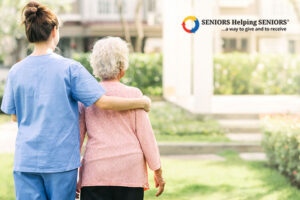How to Prepare Your Household for a COVID-19 Outbreak

The CDC has issued guidance on “How to Get Your Home Ready” if you or a household member is diagnosed with COVID-19. (https://www.cdc.gov/coronavirus/2019-ncov/downloads/COVID19_FAQ_HouseholdReady-H.pdf) Creating a personal plan for your household can help protect your loved ones. The plan should be based on the needs and characteristics of your household. Do you have senior members, children, people with serious chronic diseases? Talk with your household members, relatives, neighbors and friends who will need to be included in your plan. The goal is to understand what role each person will play in the event your household is hit with COVID-19 and to plan ways to care for those who might be at greater risk for serious complications.
Early data suggests people with chronic medical conditions and those over 65 may be at risk for more serious complications and are more likely to have serious COVID-19 illness. If you or your household members are at increased risk for COVID-19 complications, it is important to review available information about monitoring for symptoms suggestive of COVID-19 and how to practice recommended infection control strategies. The CDC website is a great source of information to help keep people at high risk for complications healthy during the COVID-19 outbreak in our community. Here are some strategies the CDC recommends:
- Talk with your neighbors, maintaining proper social distance or by phone, about emergency planning. If your neighborhood has a website like NextDoor or social media page, consider joining it to maintain access to neighbors, information, and resources.
- Create a list of local organizations that you and your household can contact in the event you need access to information, health care services, support, and resources. Consider including organizations that provide mental health or counseling services, food, and other supplies.
- Personal Protective Equipment is in short supply but if a household member becomes ill with COVID-19 symptoms it is recommended that the caregiver and the patient wear a mask and the caregiver should wear gloves when interacting with the affected household member. Try to obtain at minimum gloves and masks and be sure to have a thermometer on hand.
- Choose a room in your home that can be used to separate sick household members from those who are healthy. Identify a separate bathroom for the sick person to use, if possible. Have proper cleaning supplies on hand to clean these rooms when someone is sick.
- Create an emergency contact list and keep it handy where everyone can access it. Ensure your household has a current list of emergency contacts for family, friends, neighbors, carpool drivers, health care providers, employers, the local public health department, and other community resources.
- Frequently remind everyone in your household of the importance of practicing everyday preventive actions that can help prevent the spread of COVID-19:
- Avoid close contact with people who are sick.
- Stay home when you are sick, except to get medical care.
- Cover your coughs and sneezes with a tissue.
- Disinfect frequently touched surfaces and objects daily (e.g., tables, countertops, light switches, doorknobs, and cabinet handles) using CDC recommended products. If surfaces are dirty, they should be cleaned using a detergent and water prior to disinfection.
- Wash your hands often with soap and water for at least 20 seconds, especially after going to the bathroom; before eating; and after blowing your nose, coughing, or sneezing. If soap and water are not readily available, use a hand sanitizer that contains at least 60% alcohol.
- Stay in touch with others by phone or email. If you live alone and become sick during a COVID-19 outbreak, you may need help.
- If you have a chronic medical condition and live alone, ask family, friends, and health care providers to check on you often.
- Stay in touch with family and friends with chronic medical conditions. If you are responsible for the care of a senior loved one, keep in close touch with the caregiving agency and have a back-up plan in case the agency cannot continue to provide care to your loved one.
- Take care of the emotional health of your household members. Outbreaks can be stressful for adults and children. Children respond differently to stressful situations than adults. Talk with your children about the outbreak, try to stay calm, and reassure them that they are safe.






